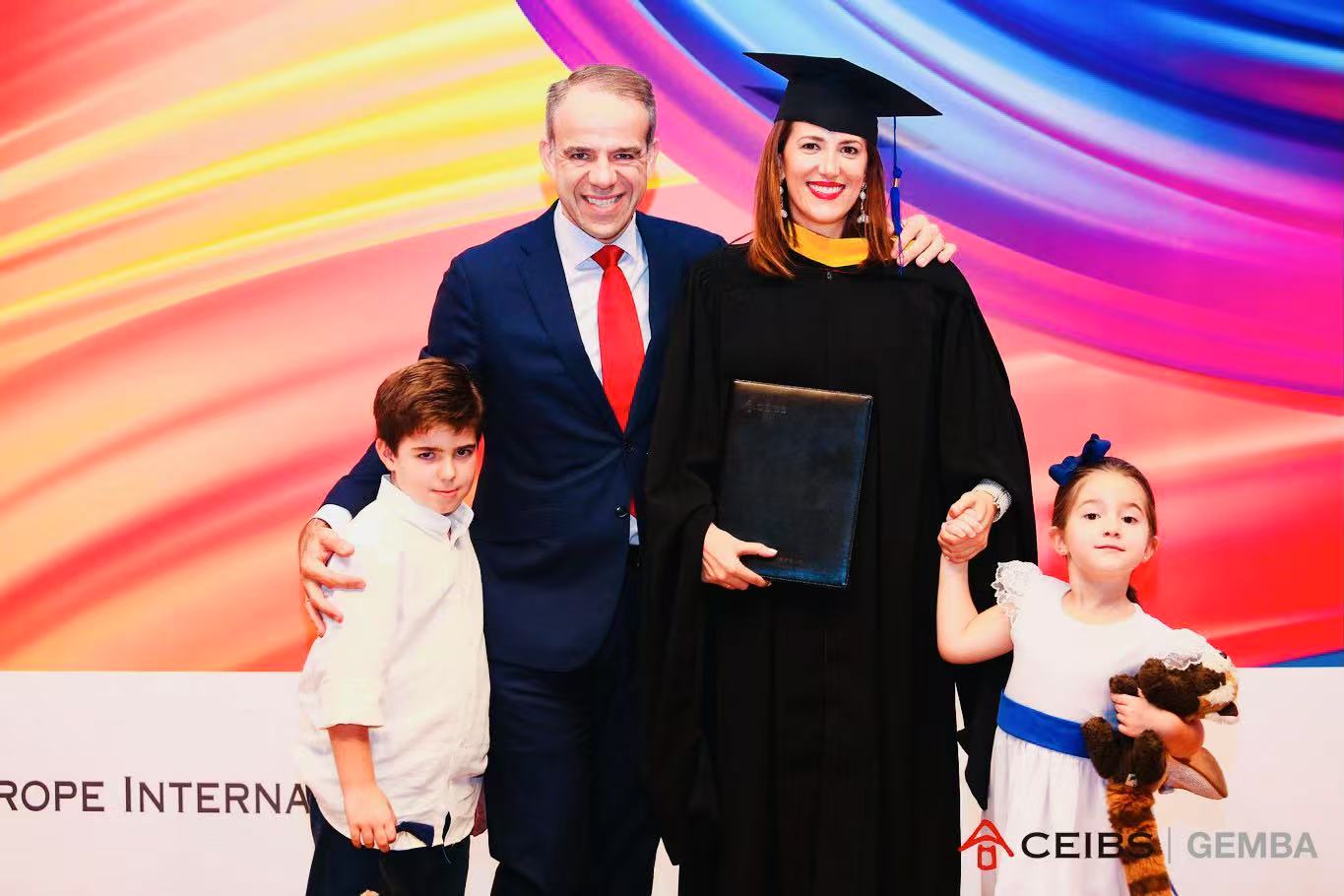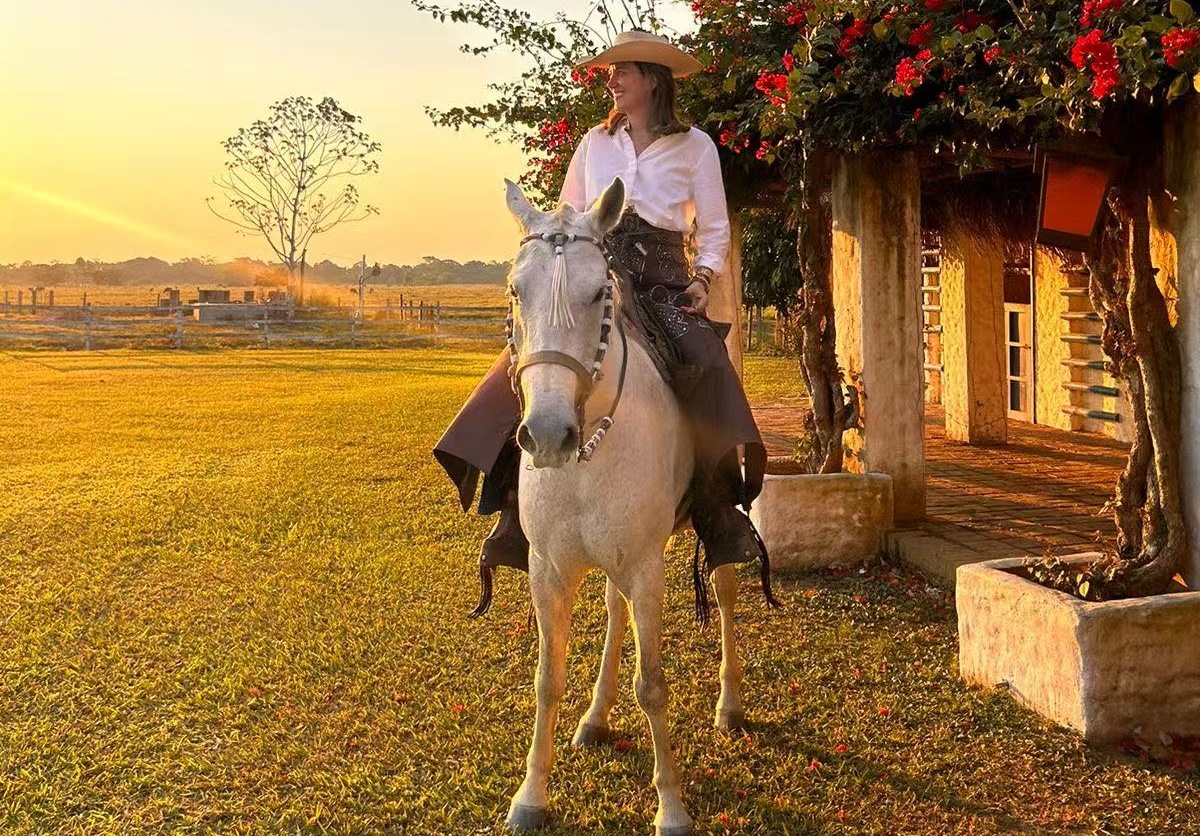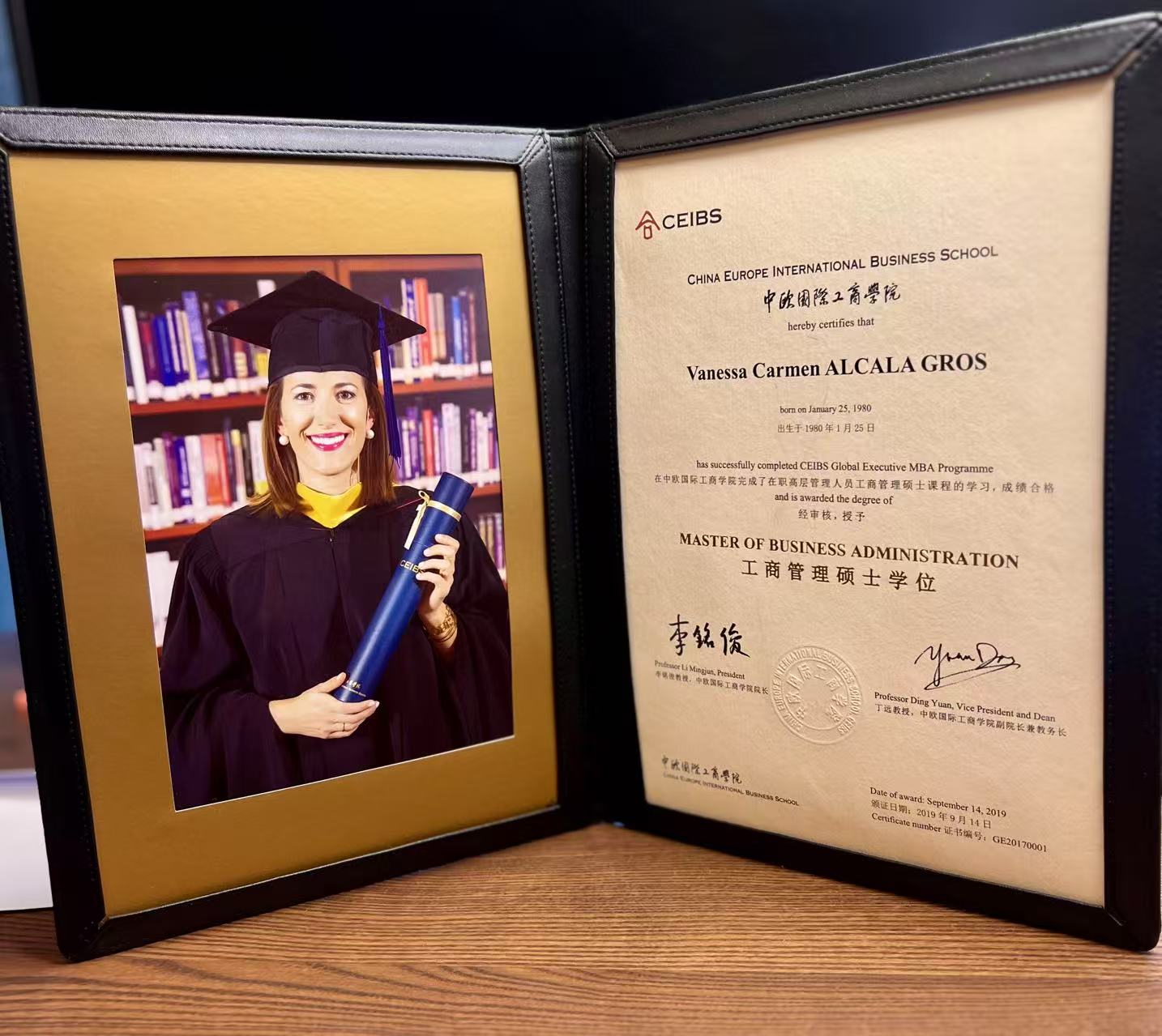Speaking the Language of Business – Vanessa Alcala Gros

Vanessa Alcala Gros, CEIBS Global EMBA 2017 alumna and Regional Country Manager, Production – Europe, Americas & Africa at H&M, believes that the best way to understand a country’s business landscape is through cultural immersion. After living in China for the past 18 years, Vanessa recently began a new chapter as she and her family relocated to Istanbul, Turkey.
Vanessa took with her a wealth of experiences gained from exploring the places, partnerships, people, and foods that have defined her time in China. Speaking days before her departure, she said that, after operating in such a fast-paced and dynamic business environment for nearly two decades, she felt confident in her ability to engage with a new country that boats an economy which is equally deeply intertwined with its culture and history.
“I first came to China in the mid-2000s,” Vanessa recalls. “I was coming over regularly to buy for a Spanish textile firm, and I remember being hooked from the beginning. There was such energy, such promise, and everybody I spoke to could teach me something new about doing business here. That’s why I settled and stayed – there was too much to learn, and I didn’t want to miss out.”
Adaptation through immersion
Even during her first months in China, Vanessa understood the importance of tapping into the commercial culture of country by literally speaking the language of the merchants she approached. Even her initial attempts at speaking Mandarin made a marked impact.
“It was almost immediate – once you speak even a little Chinese, the conversation flows more easily. I could bond with sellers, I could show them more of who I was, and that often translated into better prices, and better partnerships,” says Vanessa.
During her 18-year stay, Vanessa has striven to consistently improve her Chinese language capabilities. Going beyond private classes, she has also regularly sought out immersive cultural experiences, to better understand the roots of the language as well as its everyday usage.
“I recently went to a small town by myself for a week, to completely immerse myself in Chinese,” shares Vanessa. “I only wanted to speak with the locals. I learned to play mahjong from them; trust me, there is no better way to get good at Chinese fast! Challenging yourself, pushing yourself with no crutch or alternative method of communication, that’s how you improve quickly.”

Vanessa believes that the pace of life and business in China does encourage faster adaptation when one lives and works here. Despite the rising level of spoken English (particularly in cosmopolitan cities like Shanghai) and the proliferation of translation apps and other smartphone-based assistance, China still rewards newcomers who can throw themselves into the task of understanding and embracing its culture.
“There is a common misconception that China is hectic, chaotic even,” Vanessa outlines. “China is not chaotic; it is dynamic. The pace of life is very fast but that forces you to think fast, to act fast, and to keep up. It forces you to be organised and efficient. Like a good teacher, it teaches you what you need to know and then pushes you to achieve more.”
Getting back in the saddle – How to overcome failure
Alongside her love of language, Vanessa is a keen equestrian. Her love of horses began early, as she was born in Bolivia and has fond memories of riding, trekking and ranching in her country of birth. Fortunately, she has been able to pursue this passion in China, even passing her appreciation of horses on to her husband and daughter.
Her experiences with horses have also aided Vanessa in her exploration of Chinese business culture, where resilience and the ability to shrug off failure are highly valued.
“My father was an excellent rider, and I draw inspiration from him,” shares Vanessa. “I clearly remember the first time I fell off a horse, and he clapped and cheered me on, demonstrating that it is both natural and expected that you will fall; what matters is that you get back in the saddle as quickly as possible. No feeling sorry for yourself, no dwelling on the failure itself, and no fear going forward. This attitude is something that Chinese businesspeople fully understand and embrace.”

Be open, be honest, go get food together
Reflecting on her time in China, Vanessa believes that being successful in business here requires three key characteristics: curiosity, honesty and empathy.
Curiosity is a foundational characteristic, as it is the gateway to gaining a practical understanding cultural nuances and social norms.
“Never be afraid, just get out there and talk to people. Give yourself a KPI of talking to three new people every day. It doesn’t matter where, just strike up a conversation and practise, practise, practise,” advises Vanessa. “You will be amazed how quickly you will learn, and how open Chinese people are to sharing their culture with you.”
Honesty is equally important as a builder of trust and mutual respect. Vanessa strongly advocates for “honesty as the best policy in any situation”, but also reminds us to be mindful of what is not being said:
“If you want to find out what is happening, you might not always get a straight answer. So, maybe don’t ask the question in front of everyone, where it might cause embarrassment; instead try to create a safe space for your colleagues to feel comfortable sharing their findings and feelings. Remember that some of the key discussions don't happen in the meeting, they happen outside the meeting, so stay connected and inspire trust wherever possible. Building relationships sometimes matters more than the task at hand.”

Finally, Vanessa’s shared one parting piece of advice – a near-guaranteed method for developing knowledge, friendships and fruitful business partnerships in China is to leverage the sharing of food. Vanessa has loved her culinary exploration of China, developing a particular fondness for Beijing duck and hong shao rou, or red-braised pork. More than a sensory experience and biological necessity, food is of deeper significance to practically all cultures. For China, it is an inherent part of the language of business, a means to create the right conditions for mutual understanding in enjoyable, relaxed manner.
“I’ve learned that Chinese culture values politeness and respect highly, and food is tied to those values. Going for lunch or dinner is always a good way to bond with people; it’s a socially helpful way to get to know each other and ease into the business conversation gently. If you’re ever in doubt how to approach a business situation in China, start by taking the other party to dinner!” Vanessa urges.
This article is based on an interview between Vanessa Alcala Gros and CEIBS MBA 2009 alumnus Jeff Pi, host of CEIBS Alumni International Chapter (CAIC) podcast ’Unscripted’. Click here to watch the full interview on YouTube.










